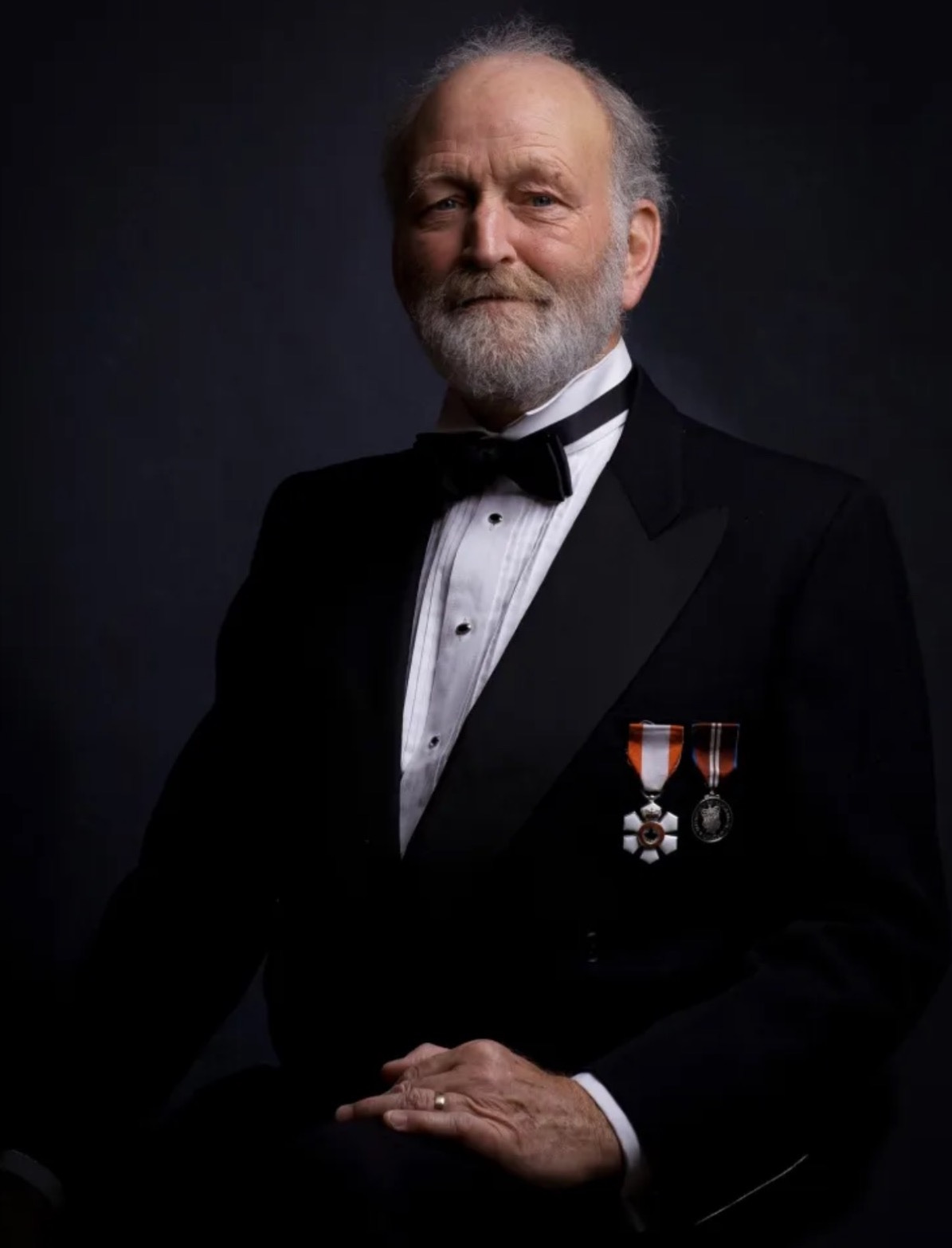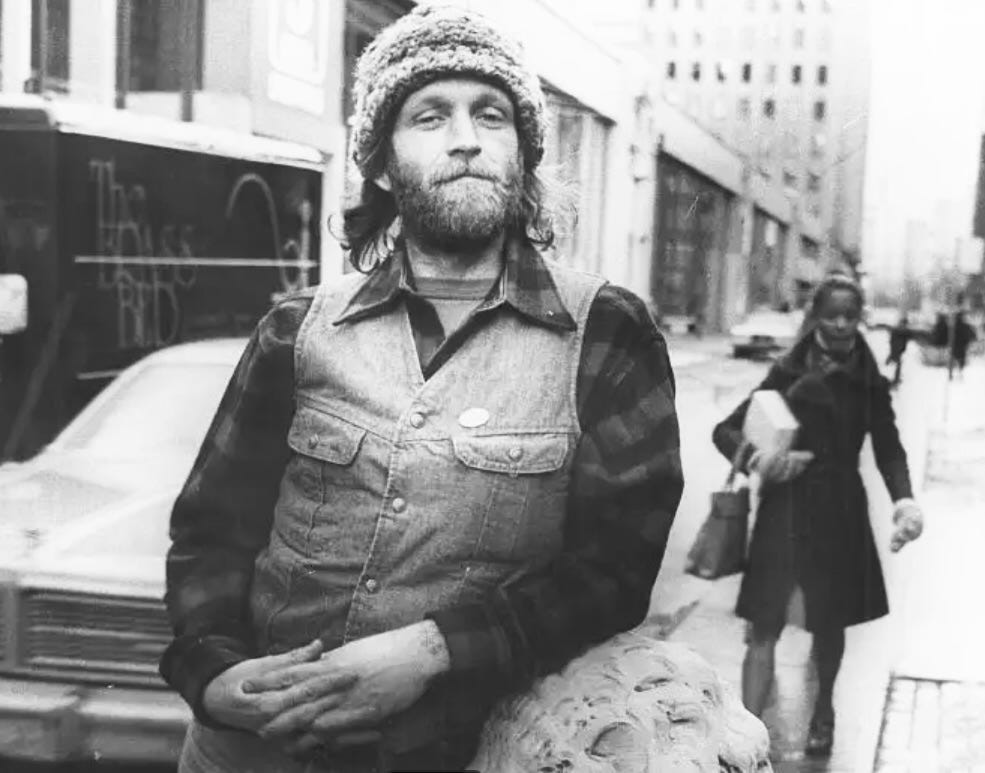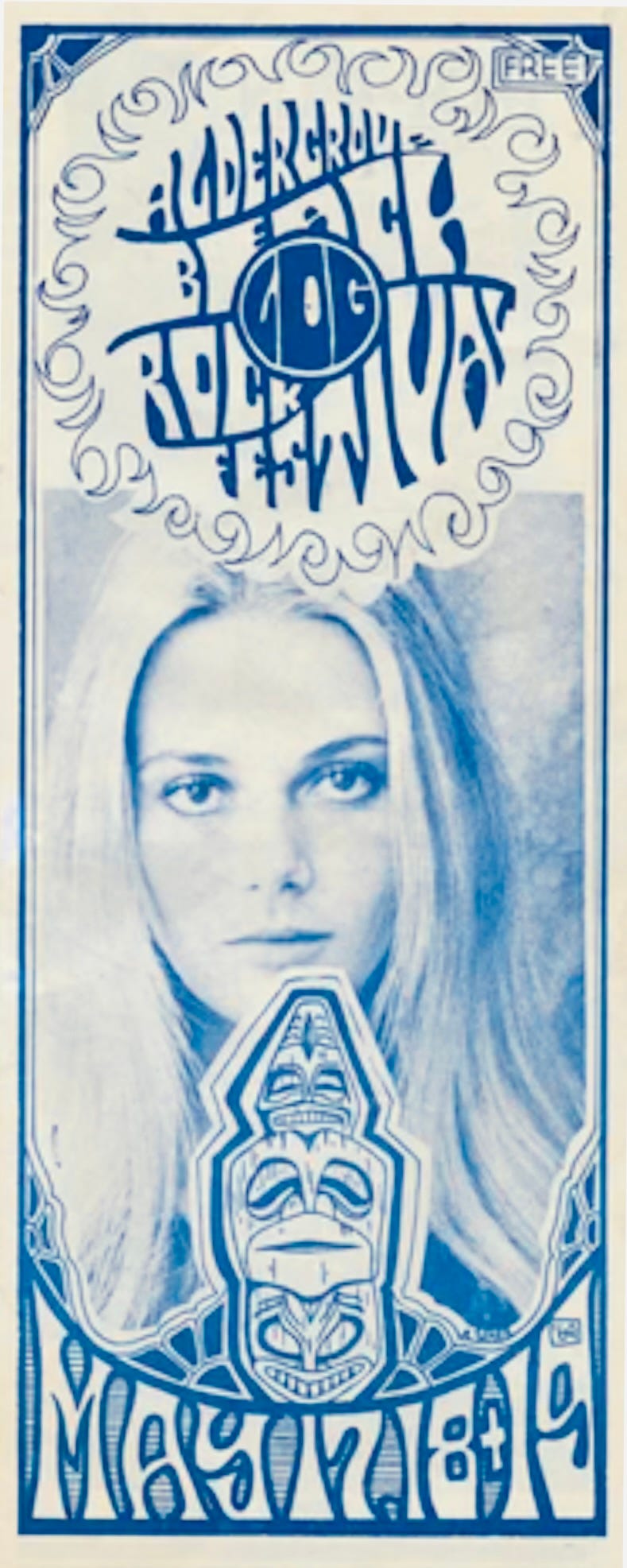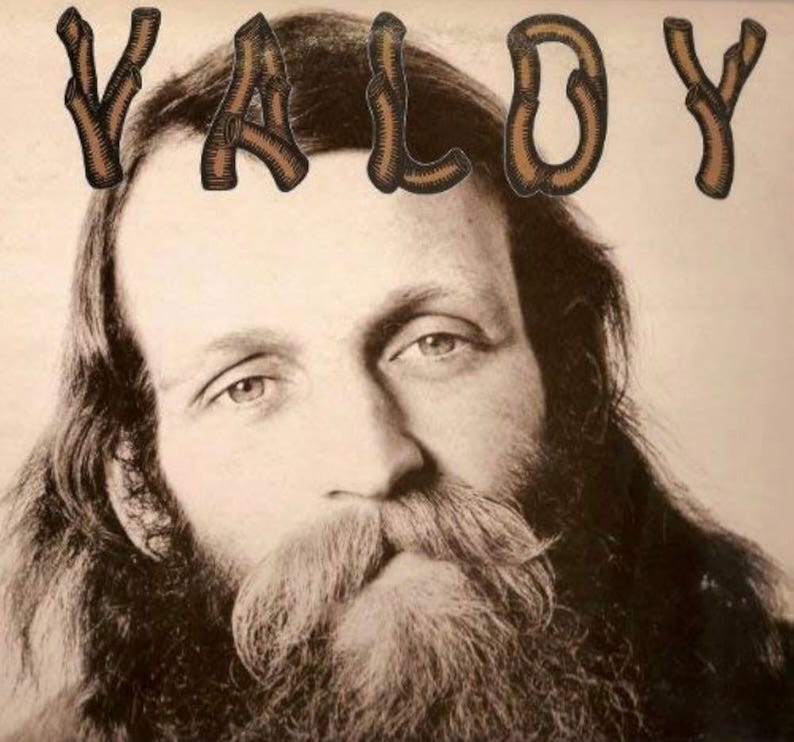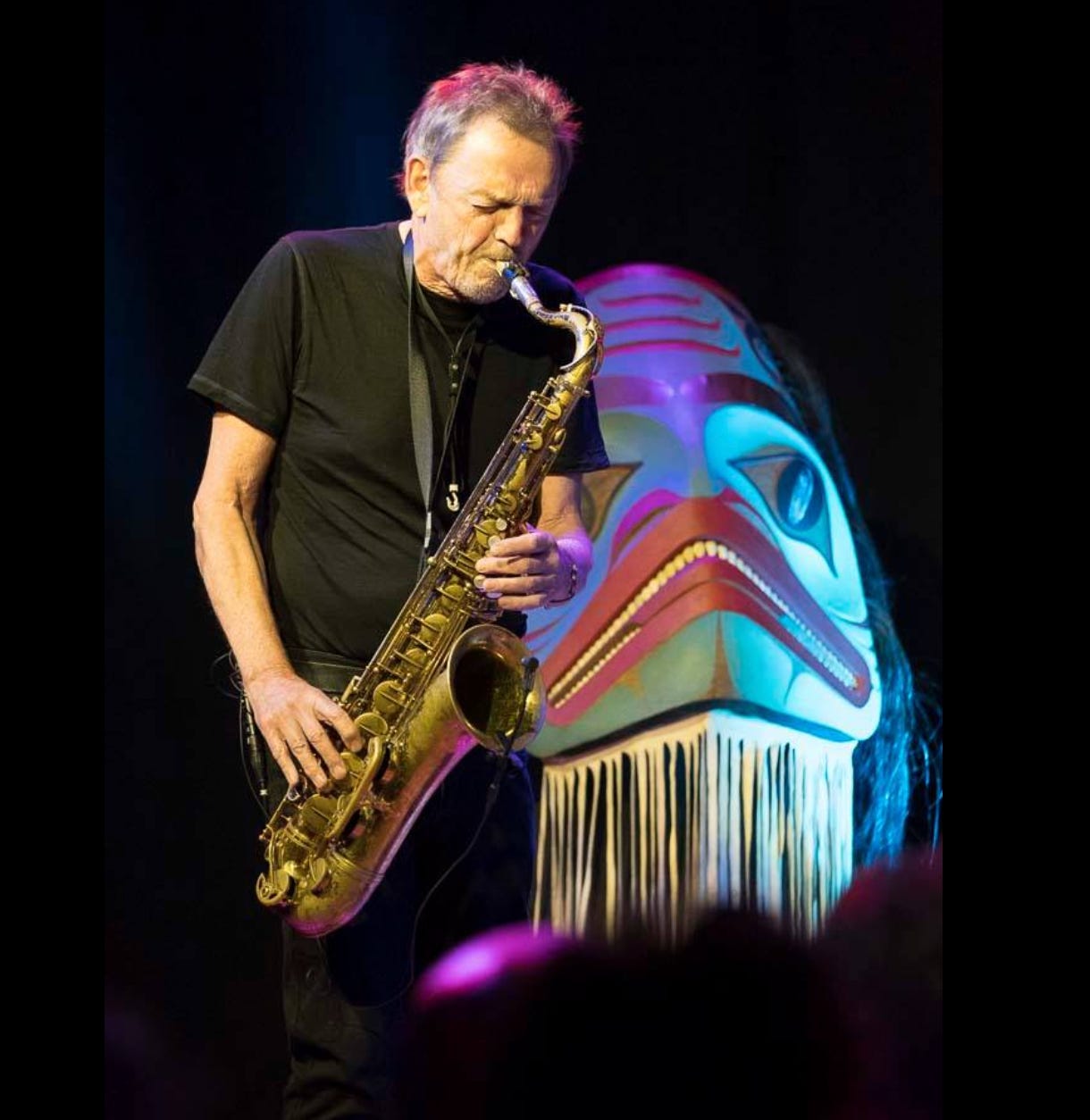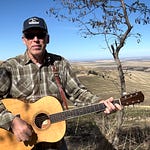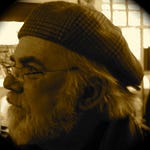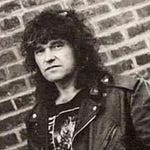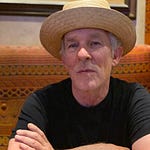(TO HEAR THE AUDIO INTERVIEW PRESS THE PLAY BUTTON ABOVE)
Read along with the podcast here:
Hello, friends, thanks for meeting me here my name is Virgil Brown, and this is my Substack post entitled: Valdy, Canada's Great Folk Hero.
Together, we're going to take a deep dive into his first big hit, which was called Play Me a Rock and Roll Song. We'll dissect and examine the recording of that song and tell the true tale of how it came to be. Along the way, I hope to learn what makes this great Canadian artist tick. It will take more than one episode, that's for sure.
Valdy singing: I came into town as a man of renown, a writer songs about freedom and joy. The hall had been rented and I was presented as a kind of a singer that all could enjoy. As I climbed up the stair to the stage that was there, it was obvious something was missing. I could tell by the vibes they wouldn't be bribed. They weren't in the mood to listen. They yelled out, play me a rock and roll song.Don't give me songs about freedom and joy. Play me a rock and roll song or don’t play me no song at all.
Over the past few weeks, I've been talking to Valdy and in a few minutes, you'll be able to listen in on our conversation. For those of you who've never lived in Canada and probably never heard of him, stay with me. Keep listening because I am happy to introduce you to Valdy and share some of the incredible stories that seem to surround his life.
Play Me a Rock and Roll song was a giant radio hit in Canada back in 1972, and it has lingered and remained relevant ever since. It's a rare jewel of the airwaves because it's a folk song, a rock song, and a waltz all at once. Since those days long ago, many of Valdy's songs have become like old friends to me.
In 2022, I wrote a book called Almost Famous in Alberta and Other True Stories. It's a collection of 35 short stories from my wild Canadian youth.In a chapter called Radio Activity, I wrote about being a teenage disc jockey at radio station CJAV in Port Alberni on Vancouver Island. I had an 8-track tape of Valdy in my Datsun pickup, so I'd heard his big hit many times. But it was at the radio station that I finally had access to all of his albums, and as an aspiring young guitar player, he became a real inspiration to me. I'm the guy who thumbtacked his album covers to the studio walls at the radio station.
There's another story in my book about meeting one of the greatest record producers of all time, Arif Mardin of Atlantic Records. I sat next to him on a flight to Egypt once and asked him for his advice on how to make a great record. His answer was short and simple. Find the absolute best musicians and hire them to play on your recording.
I've always wondered how Valdy got his recordings to sound so good and it turns out that Arif Mardin was 100% right. With a great producer of his own and the very best studio musicians, Valdy converted his folk music sensibilities into a folky pop-music ear-candy that is more often than not, quite sophisticated. Like it says on one of his album covers, he's a folk singer deluxe with a side of fries.
If you're a Canadian of the boomer generation, you haven't forgotten hearing Valdy’s songs on your local and national stations. For a while there, he was everywhere all at once. At least up in Canada.
Propelled by his hit records, Valdy has played about 200 shows a year for over five decades. I doubt any other Canadian musician has performed anywhere near as many shows. It's impossible to calculate the great distances he's traveled on his long and winding road trip. He's found a warm welcome in every inhabitable corner of Canada's nearly 10 million square kilometers.
He's met and shook hands with more Canadians than any politician. It's no wonder he's an honorable member of the Order of Canada. Four of his albums went gold, and he's won two of Canada's prestigious Juno Awards.
Yet, after more than 10,000 performances, he remains mostly unknown in the USA, except among Canadian snowbirds who populate the sunny southern states every winter. Valdy has always come off as unpretentious and down-to-earth. He's a counterculture hero of sorts, and way back when, you'd have probably called him a hippie.
For me, he's kind of like the North Star, a guide for how to conduct yourself if being a hard-working musician is your goal. He just keeps on going. He continues to give his all to every performance. He arrives grateful, cheerful, and can't help but dance as he glides through his compelling collection of songs. He wins over every audience with his warm-hearted storytelling and humor.
Though he was raised back east in Ottawa's center-town neighborhood, Valdy eventually made his way to the west coast, where in his early 20s he worked as a draftsman for the city of Victoria. He bought a five-acre oceanfront farm near Sooke, B.C., where he inadvertently started a commune. That's about as counterculture as you can get, but there was an event on the horizon that would shape the rest of his life, and it would come disguised as a failure.
In the summer of ‘69, there was a small rock festival just outside of Vancouver in a border town called Aldergrove. At the Aldergrove Beach Music Festival, cops, bikers, drugs, alcohol and about 25,000 teens and 20-somethings, many of them naked, mixed-together in an intense cultural stew that somehow remained peaceful.
On stage, an American guitar slinger from Texas named Guitar Shorty was playing the blues andliterally doing backflips, when suddenly the electrical power to the amplifiers shorted out. The microphones were still working, but with no sound from his guitar, Guitar Shorty left the stage.
The concert promoter, facing an impatient crowd with no power for the band's equipment, found long-haired, bearded folk singer Valdy nearby and asked him to go on stage with his acoustic guitar. Valdy could tell this was the wrong crowd for his style of music, but he went on stage with his old Martin guitar anyway. His sincere, peaceful folk music was more than the rowdy, fired-up rock crowd could handle. As Valdi later put it, they weren't in the mood to listen.
Valdy singing: I played them some songs about peace and contentment, things that I’d come to believe in. When I was through, to chorus boo some track star yell thank god he's leaving! Now someone play me a rock and roll song I've had it to hear with your flowers and beads, play me a rock and roll song or don't play me no song at all.
They began shouting, “rock and roll,” along with a few insults. Luckily, a small group in the crowd clapped for him at one point, so he took that as a tiny victory, made that his last song, and walked off the stage to a smattering of boos.
Valdy singing: Well, if I played you a rock and roll song, it wouldn’t be faircause my head isn't there. So, I’ll leave you with your rock and roll songs and make my way back to the country. Still, I heard play me a rock and roll song, don't give the music that I don't want to hear.Play me a rock and roll song I should have stayed at home with a big case of beer. Play me a rock and roll song or don’t play me no song at all.
Now, a lesser man would have taken this as a bitter defeat, but Valdy didn't. He rose above it. He was already a journeyman in the craft of songwriting. Like a blacksmith, he took the wreckage of that day and bent it into the shape of a perfect song, creating a neatly trimmed musical documentary of his experience on that day long ago.
Valdy’s hit record became the perfect advertisement for what he was really selling, a warm-hearted style of folky pop music. His hit was the best promo a solo acoustic artist could have. Career-wise, he had the wind at his back from then on. But what was it like for Valdy to go through this musical metamorphosis?
I've always wondered, and I didn't want to wonder anymore, so I reached out to him at his home on Salt Spring Island. We spoke about many things, like the weather and the politics of big-oil subsidies.Then the topic switched to the recording of his songs, and we went deep into the details.
Later, I also spoke to his producer, Claire Lawrence, who gave me additional insights about the recording sessions and how he met Valdy.
The day I called Valdy at first, we had a rough connection, so I had to hang up and dial him again.
Subscribed
Here's part one of my interview with Valdy:
Valdy: Hey, Valdy here.
Robot Voice: This call is being recorded.
Virgil: good morning, sir.
Valdy: Virgil, I'm sorry, something happened here. You disappeared.
Valdy: I did. I'm sorry about that. I was wondering if it might be related to
the weather cyclone-bomb you guys had up there that caused so much trouble.
Valdy: We lost a few trees, but nothing killed us.
Virgil: Yeah.
Valdy: It was pretty wicked. It was 30 feet high waves.
Virgil: Are you kidding me?
Valdy: Not here. Out on the outside. The outside of Vancouver Island.
Virgil: Yeah.
Valdy: It was a weird wind, eh, because the bomb was off the coast, off the west coast of the island.What it does is it's not blowing at us. It's a low pressure. And all of the air from the surrounding area rushes into it to normalize it. Because that's what the climate does. If there's an anomaly, the rest of the weather situation tries to stop that anomaly. So, all this air was moving from the interior out to...out to the sea. And so, we had an east wind,which is a very rare one for us here, and it affected a bunch of surfaces that generally don't get blown.
Virgil: Right, yeah, the trees were all leaning the other way.
Valdy: That's exactly right. There's still probably still 30,000 people without power here in BC two days later.
Virgil: Yeah.
Valdy: And shut the beaches.
Virgil: Well, you know, that makes me think about something I saw you on YouTube involved with which is Seniors for Climate Change.
Valdy: Yeah.
Virgil: A pretty nifty little song you wrote about, you know, “Stop the Subsidies.”
Valdy singing: Stop the subsidies, fund the people. Stop the subsidies and fund the people. We could wring our hands and cry as so many people.
Virgil: Are those subsidies for oil companies that you're talking about?
Valdy: That's correct. The Canadian government subsidizes the oil companies before they pump a drop of oil by $7 to $8 billion a year. It's like people you don't want renting from you, but renting for free. And then they turn around and charge us up to $2 a liter, which would work out to about $7 a gallon for gas.
Virgil: The Norwegians somehow...outsmarted these guys, and Norwegian citizens get a great personal income from the oil industry there. It would certainly be a model to follow.
Valdy: Yes.
Virgil: So, Valdi, are you 79 years old?
Valdy: Yeah, I just heard 79 in September, and 79 is a prime, I'd like to point out. So it's going to be a good year for me.
Virgil: That's fantastic. but you're still out on the road and still enjoying it.
Valdy: So yeah, the road is still, it still beckons to me. I like it. I like the independence of it. And I still love staying at home too. My wife, we have our pets and the home's a great scene, but the road is, is where I get to sing.And to me, playing music, particularly playing music for people is therapeutic for me. It keeps me healthy mentally and possibly physically too, and psychologically, emotionally, all that. Music is my therapy.
Virgil: A question for you about, you know, you did that first album with Claire Lawrence on Haida.
Valdy: Pretty brilliant man, and he helped my career indispensably by being such a proficient producer. He produced the first album I did, which was Countryman, which was on Haida. He was hired by Haida.
Virgil: And then somehow Jerry Moss and Herb Albert got involved with A&M, right? How did that happen?
Valdy: Haida Records was distributed by A&M in Canada.
Virgil: Ah, I see.
Valdy: And Keith, rather than have me record in a small studio in Vancouver, got us to go down to the A&M lot in Hollywood, and we recorded there.
Virgil: Who's Keith?
Valdy: Keith Lawrence was my manager. He was Claire Lawrence's brother, actually. And he was a hockey coach, and he wouldn't take no for an answer.
When he didn't like something, he'd punch ‘em out. He was a real old-time hockey pugilist.
Virgil: Very Canadian.
Valdy: Mm-hmm. An aggressive man, but a very good businessman with a good sense of timing and what's appropriate and what's not.
Virgil: He somehow arranged to get you guys down to the studio on the A&M lot. How did he do that?
Valdy: Yeah, he got us to record in Studio A, no, Studio B down there. and we used, Claire then took over and became the producer and picked his musicians.
Virgil: You picture me as that teenage kid driving down the island, listening to Valdy in my Datsun pickup. I would hear those harmonics to Rock and Roll Song at the beginning, and I would get my “air drumsticks” ready, just - I had to play that opening drum riff, you know, that's just so great. And then I come to learn that it was Jim Gordon who played that. In my mind, I'd always thought that you guys were recording in Vancouver. Then I learned it was Jim Gordon. Now, I've always wondered, why is the drum sound on that record literally the best drum sound I've ever heard? And then, you know, I mean, that is such a great drum part. And I'm sure Canadians from coast to coast have air-drummed that many a time after a few beers.
Valdy: I still do.
Virgil: Yeah. (laughs) It's so great. At the time, did you know who Jim Gordon was or what was going on in that scene there?
Valdy: Yes, I was aware of his stature and his touring. He had just come off the road with Mad Dogs and Englishmen.
Virgil: Oh, geez.
Valdy: With Joe Cocker and Leon Russell.
Virgil: Right.
Valdy: And when he had gone out, he was a fairly sedate but brilliant studio drummer. And when he came back, he was a bombastic arena drummer.
Virgil: Ah, gee.
Valdy: He had a lot of influences in his life. And ultimately, he ended up being one of the best drummers there was in Los Angeles for his period of time. Jim Keltner then took over from him.
Virgil: Yeah. Do you remember the session well for that song? Does it stick out in your memory?
Valdy: Rock and roll song?
Virgil: Yeah.
Valdy: Yeah, I do. I played in the studio with them, the acoustic guitar, so we did it live as a trio. That's why we got that jump, that feel in it.
Virgil: So, it was you and Jim Gordon.
Valdy: Jim Gordon and Max Bennett.
Virgil: Max Bennett, right. He wrote that song for you.
Valdy: He wrote Simple Life.
Virgil: That's right, yes. What a great tune.
Valdy singing: Will you never let me go I have tried to please you so Common sense should tell us that we're through Time and time again I've pleaded For a love so badly needed, but I guess it really wasn't meant to be Give me the simple life I need the simple life Don't want to worry about tomorrow Live every day completely Love for the joy of loving, then I will be happy
Valdy: During the session, he hauled me across to studio A, which wasn't being used, and played the song for me on tape. And I liked it. I said, good, I'd like to record that. So I went back and I changed it all around and came up with a few lines. And I then went and recorded it, and I think I paved his driveway. Before he died, he called me a few times from his new home down in La Jolla. He was still going up to LA and playing. Still jazzing with local people every week. Even in his mid-80s, he was still one of the most active bass players there was.
Virgil: So, you guys stayed friends?
Valdy: No, no, no. We were professional associations. When I just did this band this summer, I got to use a player here named Peter Douse. And he asked about my recording history. And I said, Max Bennett. And he about fell off his chair. He said, Max Bennett is my role model. He said he was the guy I listened to when I was learning bass. And that's the first person I've met who had dug in like that.Because Max played with the Jazz Crusaders. He was on the road with Joni Mitchell as one of her bass players. He was a real sought-after cat. And rightly so, he deserved it. The fact that he played until his death in his mid-80s, I thought was pretty good.
Virgil: And that would probably explain how you got Joe Sample to play with you, too, then, because of his connection to Max?
Valdy: That was Claire Lawrence. Claire asked, probably asked Jim and Bill who they would suggest for, you know, for keyboards on this particular song.And that's where Buddy came in.
Virgil: It has a blistering guitar solo. What can you tell me about that?
Valdy: A brilliant guitar player. from Chilliwack out in the Fraser Valley to the east of Vancouver. His name was Brett Wade, and he's still playing guitar. And he had this real snaky feel to the way he played and was somewhat ahead of his time. And he tacked that solo along and was just perfect for the record, for the tail, particularly given the bombastic nature of Jim Gordon's drumming.
Virgil: I was lucky enough to speak with Valdy’s producer, Claire Lawrence,and hear firsthand his memories of recording with Valdi. Claire was a founding member of 60s psychedelic band The Collectors from Vancouver, who eventually became Chilliwack. He'd go on to produce more than 70 albums. Here's an excerpt from our talk. There'll be more from Claire in Episode 2.
Virgil: Good morning, Claire. Virgil Brown here.
Claire: Hi, how are you?
Virgil: Good.
Claire: I'm sorry that I was not available on Saturday.
Virgil: Oh, no problem at all. It had to be when it was right, you know?
Claire: Yeah.
Virgil: Yeah.
Claire: That's how it works.
Virgil: Yeah. I was originally, I wanted to talk to Valdy to figure out how he did it, you know, how he got that record to sound so great. And well, when the first thing out of his mouth was about you and, uh What a great impact you had on his career and what an unbelievably great producer you were for him.
Claire: Boy, that's nice of him to say that. I'm happy to hear that.
Virgil: How did you meet Valdy?
Claire: Well, my older brother was a manager. He managed the collectors for a while, collectors slash Chilliwack for a while.
Virgil: Yeah.
Claire: Until I left them, really, I think.
Virgil: And that was Keith, right?
Claire: And he was managing Valdy after that. And he also had a record company, so he hired me to produce Valdy. So, the first time I met him,I went to a club down in, I forget the name of that square in Victoria.
Virgil: Market Square?
Claire: Yeah. Yeah, it's Market Square, yeah. There was a club there, and I watched. I saw his performance, and I saw how effective he was in live performance. And then I think the collectors played...a gig at U-VIC. And Valdy was there, so we went after and just had a coffee in the cafeteria.And he came and sat at the table. I started talking to him. He was there.And then I went to work with him in L.A.to record. We recorded four or five albums in total, I think. I was going to tell you about the Rock and Roll Song. That was one of the first four songs we did. “A Good Song” was another one.
Valdy singing: I am not a free man but neither am I chained, I am not a wise man but neither am I rearranged.
Claire: We used Studio C in A&M Studios, which was a smaller room, and it didn't have ISO booths in it. It was all just one relatively small room, although they had a couple of baffles that they could put in.Valdy was behind the baffle in a corner. But there he was, playing live with the drummer was Jim Gordon, who is one of the all-time great drummers. He met a tragic end. Do you know about him?
Virgil: Yeah.
Claire: What an amazing drummer he was. So, we were recording this song,And it was Jim Gordon's idea to play that drum fill. And the sound of that drum fill is the way it is because part of the drums leaked into Valdy's mics. Now later, people got into recording drum sets with room sound. But in those days, people didn't do that so much. They would try and have separation between the drums and the rest of the instruments. So that's a part of that fantastic sound in the drum intro of Rock and Roll Song.
Virgil: Wow.
Claire: And the guitar was played by Brett Wade, who was down there playing with the Electric Prunes, I think, at the time. He came in and he played some guitar overdubs for...Valdy and one of them was that guitar playing there, and I remember one idea I had was that he played this we called it rote guitar eventually where (hums a musical description) and then playing the bass notes on a driven guitar amp sound. And thats a big part of that recording too.
Virgil: I figured that it was him playing those lines behind the guitar solo. It was a very, very cool idea.
Claire: Yeah, that's right. That was Brent doing that.
Virgil: It was a great day.
Claire: Yeah, we were really excited to finish that song.
Virgil: As a recording artist myself, I'm always listening to all the playbacks, and you know when you got it, and you know when you didn't. But you guys, did you just sit around and marvel at that for a while?
Claire: No, we just kept going because we had other songs to work on, but it felt really good. I remember just the band track, which was Max Bennett was playing bass, The drummer was Jim Gordon, and Valdy playing acoustic guitar. That's all we had, but Valdy sang it live, too. And the thing that I really noticed, like sometimes other recordings we did where maybe Larry Carlton was the guitar player, and then we did some recordings of Joe Sample. They loved playing with Valdy. Yeah, that interaction between everything being done at the same time, it was terrific.
Virgil: Joe Sample was digging on Valdy, I can imagine that. He played a beautiful part on “Landscapes.”
Claire: Yeah, you're absolutely right, he did.
Virgil: Amazing.
Valdy singing: You still haven’t found what’s really you and I wonder when your running will be through? Your running will be through.
Virgil: This song is called “Allons Mon Canada,” featuring Claire Lawrence on soprano sax and Valdy on his old Martin guitar. When I hear the sound of them playing together, I realize that Valdy and Claire really met in a place called destiny. Together, they struck gold. Their meeting was meant to be.Their fates were entwined, and so forever are their legacies.
My conversation with Valdy continues.
Virgil: Say, tell me, what was it like to receive the Order of Canada? Was there a big ceremony? Were your kids there? I mean, what was that like? How did that feel?
Valdy: Two of my three kids were there, yes. And my wife and a friend from up north. I was allowed one friend, a couple of family members. And it was just a great experience - thing to hobnob with that level of the royalty representation in Canada. And there were three levels to the Order of Canada. There's a member, which is what I was invested into. Then there's a companion. And then there's the officer. Howie Meeker was getting one. It was lovely to be associated with, and even considered a peer of those kind of people. It happened in Ottawa at the Rideau Hall, which is the residence of the Governor General of Canada, David Peterson at the time, I believe. It was a good affair, and there's people who are there because they give a lot of money. Their vibe was entirely different than those of us that got it from the creative community. But we all got along just fine.
Virgil: When you were a kid in Center Town, you probably never dreamed of that.
Valdy: I certainly did not. I still pinch myself today.
Valdy singing: So come on, so come on, my Canada. We are too old now to be so…
Virgil: uh I just can't thank you enough. I'm super grateful to you, man. Thank you so much.
Valdy: Oh, yeah. You're welcome. You're welcome. You're one of the guys in the hood, you know. So, thank you for your music and how your music has affected people. And good luck with it down the road.
Virgil: Thank you so much.
Valdy: Thank you. Enjoy your day in Sedona then. Thanks, Virgil.
Virgil: Okay. Take care Valdy. Bye-bye.
Well, folks, that's the end of part one of my interview with Valdy, Canada's Great Folk Hero. In the next episode, he shares stories from his youth, the early days of his career, and some more politics.Then I talk to some of the other players in his story, like Canadian singer, songwriter, and multi-instrumentalist, Juno Award winner Shari Ulrich of The Hometown Band.She recorded and toured with Valdy for over two years.
I'll also talk more with Claire Lawrence, whose early years in his father's jazz band shaped his future. I also get to talk to a key player in this story, songwriter Bruce Miller, who unexpectedly found himself to be the catalyst that caused the birth of an excellent band when Valdy recorded a song of his called “Hometown Band.” It's a pretty cool story, and I can't wait to tell it.
Don't forget to visit Valdy.com He's got a great website. You can order some of his music there and find out where he's playing and go see this Canadian legend in person. He will be in a town near you, so check out Valdi.com.
If you're a Facebooker, follow Valdy Fan Page. It's a fun place, and almost every Sunday at 5 p.m.Pacific Time, you can listen to Valdy play live on his weekly show called “Live at Five.”
Also, be like Valdy. Get involved in the cause that is so important to us all by visiting the website seniorsforclimate.org. If you're not a senior, find one and get them to learn more and sign the pledge at seniorsforclimate.org.
My name's Virgil Brown. My website is virgilbrownmusic.com. Go there and download a free album or two or order a copy of my book, which is called Almost Famous in Alberta and Other True Stories.
I hope to be back soon with part two of my conversation with Valdy, but these podcasts take hundreds of hours to make, so don't hold your breath.
Wait, was I supposed to say that? Probably not. Well, if you enjoyed what you heard today, don't be afraid to become a subscriber to virgilbrown.substack.com
Subscribed
You'll get my newsletters and podcasts for free.
Thank you, everybody, and special thanks to Claire Lawrence and Valdy.




